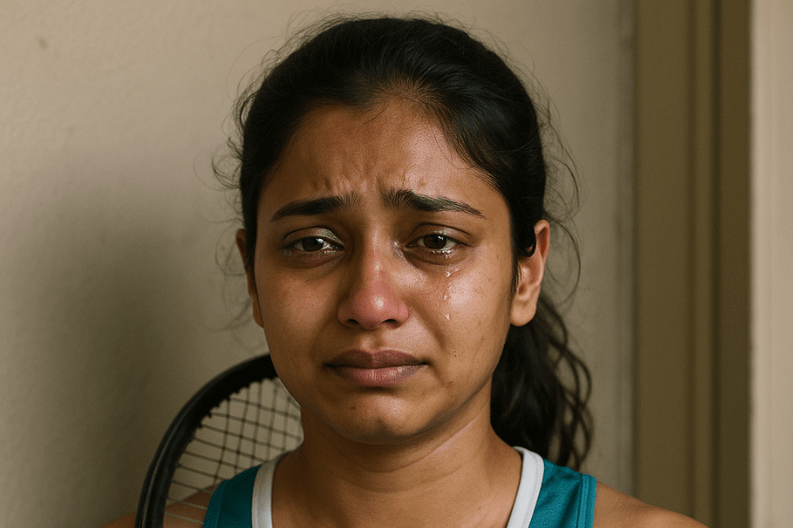The heartbreaking story of Radhika Yadav reveals a deeper social problem in India, the clash between personal freedom and oppressive control. Radhika, a 25-year-old tennis player from Gurgaon, was shot dead by her father, Deepak Yadav, in July. The tragic incident shocked the sports community and exposed the intense struggles she faced at home.
Police records show that Radhika felt trapped in her own house. She often told her friends that her parents constantly monitored her movements and imposed strict rules. According to the 400-page police charge sheet, this environment deeply affected her mental well-being. Radhika confided in her friend Aditya Pandit from Faridabad, whom she had known for just a month before her death. She shared that her parents often stopped her from attending tennis practice sessions.
Aditya also revealed that Radhika could rarely leave home without her mother accompanying her. Her parents criticized her for wearing makeup or skirts during matches. This constant disapproval made her feel humiliated and restricted.
Another tennis player, Amarnath Arora, met Radhika during a 2013 tournament in Chandigarh. He said she often described herself as a prisoner in her own home. Her mother even escorted her to training as early as 6 AM. The control extended to her online life too. Police reports state that her parents forced her to delete most of her social media contacts, reducing her Instagram followers to just 68 and making her account private.
After her death, Radhika’s close friend Himanshika Yadav posted an emotional message online. She wrote that Radhika was not killed for fame or love but because a “fragile male ego” could not accept her independence. Himanshika emphasized that Radhika built her tennis career from scratch and even launched her own academy. Despite her efforts, her father and relatives constantly shamed her for wanting to live freely.
The charge sheet revealed that Radhika had actively competed in tournaments before an injury in 2023 forced her to leave professional tennis. She then focused on coaching young players, hoping to pass on her skills to the next generation.
According to Radhika’s mother, Manju, the shooting occurred while she was resting due to a fever. She heard a loud noise followed by Radhika’s scream. When she rushed into the kitchen, she found her daughter lying on the floor. Deepak claimed that taunts from neighbors about Radhika’s character pushed him to commit the crime. Police confirmed that he used his licensed revolver to shoot her.
The autopsy showed that Radhika was shot four times in the back. Doctors concluded that she died due to blood loss and shock caused by the gunshots. Investigators have listed 33 witnesses in the case and charged Deepak under laws related to murder and illegal use of firearms.
Radhika’s story reflects a larger social reality. Across India, many women still face strict family control and judgment for their personal choices. These pressures often result in violence and even death. According to the National Crime Records Bureau, Punjab alone reported over 31,000 dowry-related deaths between 2001 and 2020. Experts say that such statistics show the urgent need for change.
Activists and women’s rights groups are calling for stronger laws, better education, and more awareness campaigns. They believe that empowering women to make their own decisions is key to reducing gender-based violence. Schools and sports academies are also being urged to provide safe spaces for women to pursue their ambitions without fear.
The story of Radhika Yadav is a painful reminder of the importance of freedom, equality, and respect. Her life and death underline the need for a society where women can live on their own terms, without control, fear, or violence. Only then can we hope to build a safer and more just future.



